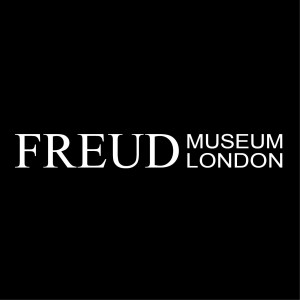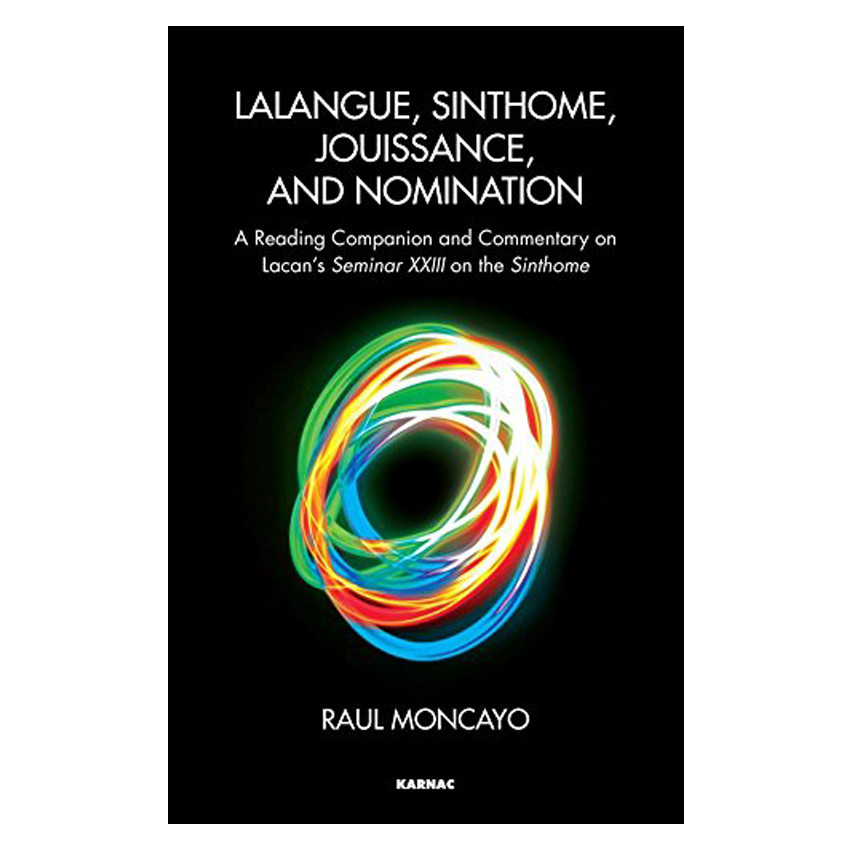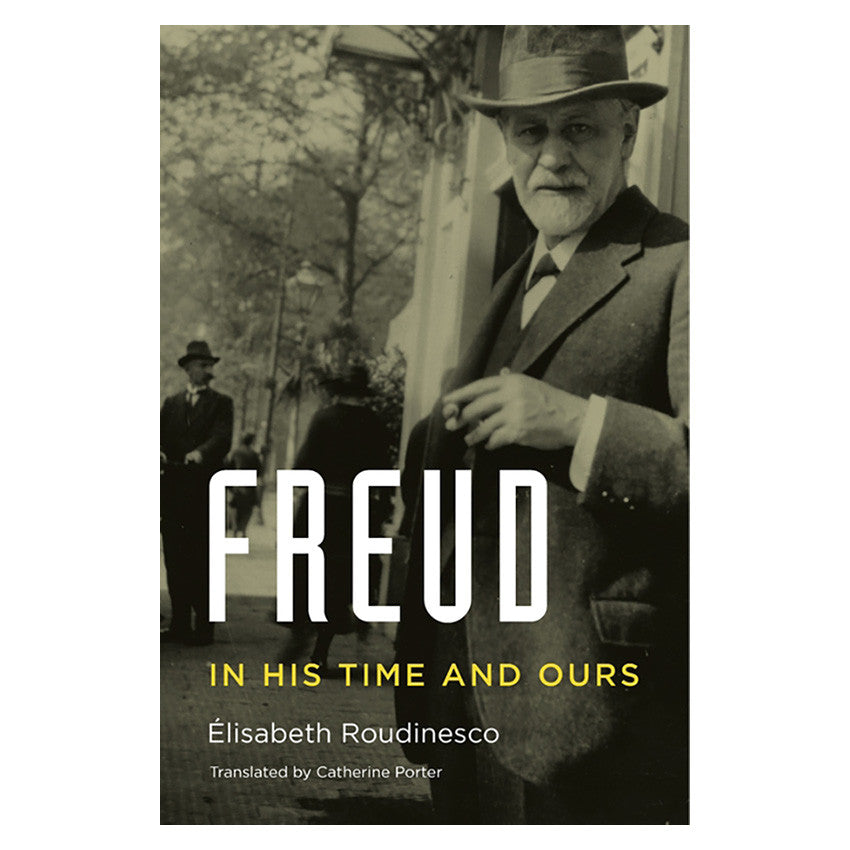Episodes

Thursday Jun 25, 2020
Author’s talk: Alenka Zupančič - What is Sex?
Thursday Jun 25, 2020
Thursday Jun 25, 2020
In What is Sex?, Alenka Zupančič approaches the question of sexuality from a Lacanian perspective, considering it a properly philosophical problem for psychoanalysis.
Drawing on Freud and Lacan, Zupančič argues that sexuality is at the point of a “short circuit” between ontology and epistemology.
Sexuality and knowledge are structured around a fundamental negativity, which unites them at the point of the unconscious. The unconscious (as linked to sexuality) is the concept of an inherent link between being and knowledge in their very negativity.
About the author
Alenka Zupančič is a Slovene philosopher and social theorist. She works as research advisor at the Institute of Philosophy, Scientific Research Center of the Slovene Academy of Sciences. She is also professor at the European Graduate School in Switzerland, and at the Graduate School ZRC SAZU (Ljubljana). She is the author of numerous articles and books on psychoanalysis and philosophy, including Ethics of the Real: Kant and Lacan; The Shortest Shadow: Nietzsche's Philosophy of the Two; Why Psychoanalysis: Three Interventions; The Odd One In: On Comedy; and, most recently, What is Sex?

Saturday May 30, 2020
The Not-Two: Logic and God in Lacan - Lorenzo Chiesa
Saturday May 30, 2020
Saturday May 30, 2020
In The Not-Two, Lorenzo Chiesa examines the treatment of logic and God in Lacan’s later work.
Chiesa draws for the most part from Lacan’s Seminars of the early 1970s, as they revolve around the axiom "There is no sexual relationship." Chiesa provides both a close reading of Lacan’s effort to formalize sexual difference as incompleteness and an assessment of its broader implications for philosophical realism and materialism.
Chiesa argues that "There is no sexual relationship" is for Lacan empirically and historically circumscribed by psychoanalysis, yet self-evident in our everyday lives. Lacan believed that we have sex because we love, and that love is a desire to be One in face of the absence of the sexual relationship. Love presupposes a real "not-two." The not-two condenses the idea that our love and sex lives are dictated by the impossibility of fusing man’s contradictory being with the heteros of woman as a fundamentally uncountable Other. Sexual liaisons are sustained by a transcendental logic, the so-called phallic function that attempts to overcome this impossibility.
Chiesa also focuses on Lacan’s critical dialogue with modern science and formal logic, as well as his dismantling of sexuality as considered by mainstream biological discourse. Developing a new logic of sexuation based on incompleteness requires the relinquishing of any alleged logos of life and any teleological evolution.
For Lacan, the truth of incompleteness as approached psychoanalytically through sexuality would allow us to go further in debunking traditional onto-theology and replace it with a “para-ontology” yet to be developed. Given the truth of incompleteness, Chiesa asks, can we think such a truth in itself without turning incompleteness into another truth about truth, that is, into yet another figure of God as absolute being?
Lorenzo Chiesa is a philosopher who has published extensively on psychoanalysis. His works in this field include Subjectivity and Otherness: A Philosophical Reading of Lacan (MIT Press, 2007); Lacan and Philosophy: The New Generation (Re.press, 2014); The Not-Two: Logic and God in Lacan (MIT Press, 2016); and The Virtual Point of Freedom (Northwestern University Press, 2016). Since 2014, he has been Visiting Professor at the European University at Saint Petersburg and at the Freud’s Dream Museum of the same city. Previously, he was Professor of Modern European Thought at the University of Kent, where he founded and directed the Centre for Critical Thought.

Sunday Oct 20, 2019
Words and Signifiers Still Matter - Yael Baldwin
Sunday Oct 20, 2019
Sunday Oct 20, 2019
Every day more modalities emerge on the mental health scene, all competing to help people suffer less and thrive more.
These include talk therapies, somatic approaches, medications and other biological treatments from harm reduction programs to transcranial magnetic stimulation, life coaching, popular and accessible self-help groups, online programmes, men’s groups, women’s groups, podcasts and mental health apps (including ones like Woebot, in which app users can have a “conversation” with an artificial-intelligence therapist). Add these choices to insurance companies’ demands for time and cost efficiency, and providers of open ended talk therapies, such as psychoanalysis, need to explicitly articulate what they uniquely have to offer.
Within the context of this climate and broader conversation, Dr. Yael Baldwin will address the unique place and role of Lacanian psychoanalysis, with its emphasis on the importance of human speech and the effects of the signifier (a linguistic term for the sounds we produce, hear, or write during speech) as it relates to the formations and workings of the unconscious, the constitution of the ego, the profound role of lack, loss, and desire in our lives, and ultimately the Lacanian ethics of subjective responsibility as these relate to treatment.
Dr. Yael Baldwin is a clinical psychologist, Professor of Psychology and Chair of Social Sciences at Mars Hill University, and the author of many articles, anthology chapters, and books on Lacan, including: Let’s Keep Talking: Lacanian Tales of Love, Sex, and Other Catastrophes. Most recently, she has a chapter entitled “On an ex post facto Syllabary” in Reading Lacan’s Ecrits: From ‘Signification of the phallus’ to ‘Metaphor of the subject.”

Friday Sep 29, 2017
Freud: In His Time and Ours - Dany Nobus and Élisabeth Roudinesco
Friday Sep 29, 2017
Friday Sep 29, 2017
Professor Dany Nobus is joined by eminent scholar, author, journalist and psychoanalyst Élisabeth Roudinesco to discuss her latest book, Freud: In His Time and Ours.
Élisabeth Roudinesco offers a bold and modern reinterpretation of the iconic founder of psychoanalysis. Based on new archival sources, this is Freud’s biography for the twenty-first century—a critical appraisal, at once sympathetic and impartial, of a genius greatly admired and yet greatly misunderstood in his own time and in ours.
Roudinesco traces Freud’s life from his upbringing as the eldest of eight siblings in a prosperous Jewish-Austrian household to his final days in London, a refugee of the Nazis’ annexation of his homeland. She recreates the milieu of fin de siècle Vienna in the waning days of the Habsburg Empire—an era of extraordinary artistic innovation, given luster by such luminaries as Gustav Klimt, Stefan Zweig, and Gustav Mahler. In the midst of it all, at the modest residence of Berggasse 19, Freud pursued his clinical investigation of nervous disorders, blazing a path into the unplumbed recesses of human consciousness and desire.
“Through seamlessly and eloquently weaving together details from Freud’s time and our own, [Roudinesco] provides a refreshingly new and welcome account—warts and all.”—Janet Sayers, Times Higher Education
“What makes Freud: In His Time And Ours…such a captivating read, is the author’s ability to explain what are often complex, deeply-layered, and dark taboo subjects, into a language that is easily understood… [A] brilliant biography.”—J. P. O’Mallery, The Irish Examiner

Thursday Mar 30, 2017
Lacan's Seminar XXIII on the Sinthome
Thursday Mar 30, 2017
Thursday Mar 30, 2017
Raul Moncayo in conversation with Dany Nobus
 Lacan's Seminar XXIII on the Sinthome represents the culmination of a Seminar that spanned over two decades and represents an evolution of his thought where previous concepts are not abandoned but rather recontextualized within the context of new theory. As the topological knot of three represents the first theory presided by the Symbolic, the knot of four represents the final theory presided by the Real and a new conception of the symptom. Until recently Seminar XXIII was only available in English thanks to Cormac Gallagher unofficial translation, but now the official translation has been published as well as Raul Moncayo's commentary on the same.
Lacan's Seminar XXIII on the Sinthome represents the culmination of a Seminar that spanned over two decades and represents an evolution of his thought where previous concepts are not abandoned but rather recontextualized within the context of new theory. As the topological knot of three represents the first theory presided by the Symbolic, the knot of four represents the final theory presided by the Real and a new conception of the symptom. Until recently Seminar XXIII was only available in English thanks to Cormac Gallagher unofficial translation, but now the official translation has been published as well as Raul Moncayo's commentary on the same.
Raul Moncayo is supervising analyst, founding member, and faculty of the San Francisco Bay Area Lacanian School of Psychoanalysis (LSP). He has a private practice of psychoanalysis, psychotherapy, supervision, and consultation. Dr. Moncayo has published five books and many papers in professional journals and has over thirty years of clinical experience including being training director for many years of a large psychiatric clinic in San Francisco and being faculty at many universities both locally and internationally. His latest work, Lalangue, Sinthome, Jouissance, and Nomination: A Reading Companion and Commentary on Lacan's Seminar XXIII on the Sinthome, is published by Karnac.
Dany Nobus is Professor of Psychoanalytic Psychology at Brunel University London, where he also convenes the MA Programme in Psychoanalysis and Contemporary Society. In addition, he is the Chair of the Freud Museum London, and the author of numerous publications on the history, theory and practice of psychoanalysis. In April 2017, he will be presented with the Sarton medal of the University of Ghent for his contributions to the history and theory of psychoanalysis, and this will coincide with the publication of a new book entitled The Law of Desire: On Lacan’s “Kant with Sade”.



